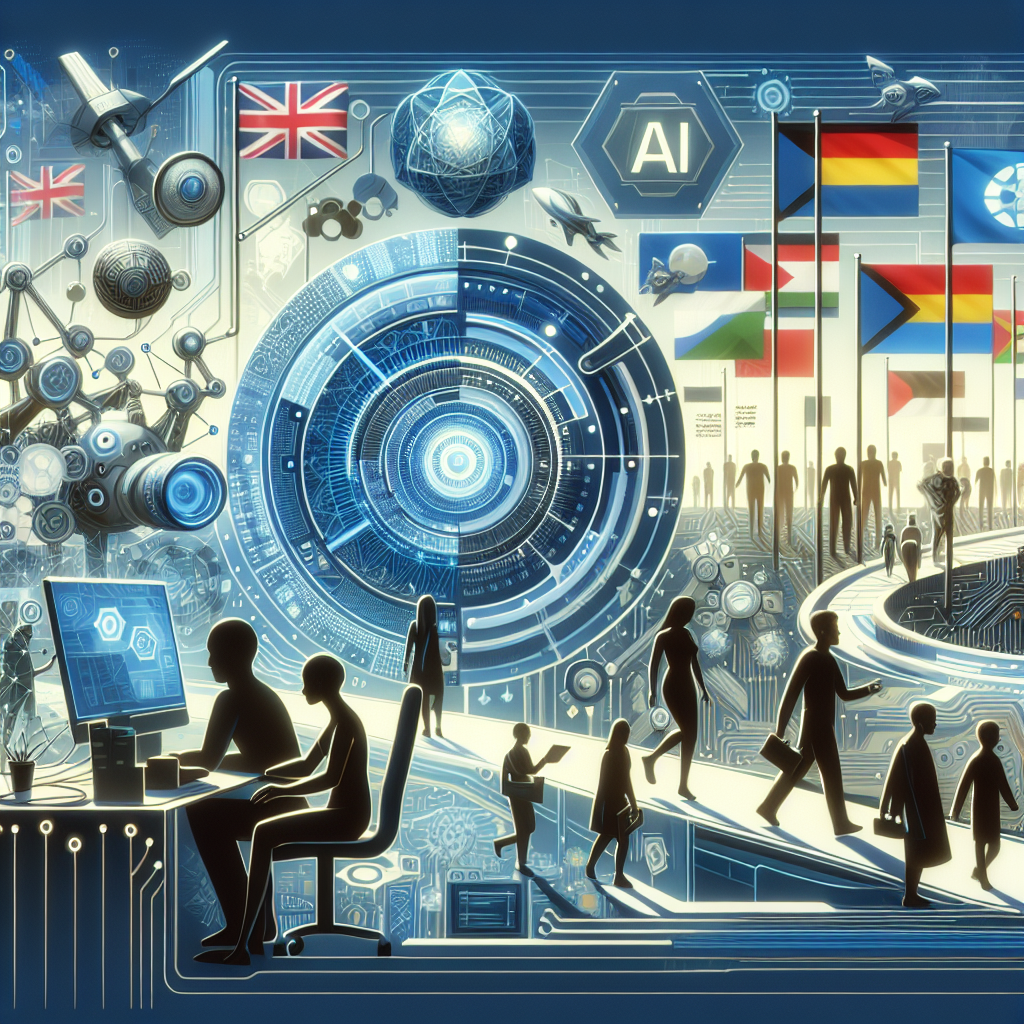The Race for AGI Dominance: Who Will Lead the Way in AI Development?
Artificial General Intelligence (AGI) is the next frontier in the field of artificial intelligence. AGI refers to a machine that possesses the ability to understand and learn any intellectual task that a human being can. This includes reasoning, problem-solving, and creativity. AGI has the potential to revolutionize industries, improve our daily lives, and even shape the future of humanity.
As the race for AGI dominance heats up, many countries, companies, and research institutions are investing heavily in AI development. The question on everyone’s mind is: Who will lead the way in AGI development? In this article, we will explore the current state of AI research, the major players in the field, and the challenges and opportunities that lie ahead in the pursuit of AGI.
The Current State of AI Research
AI research has made significant strides in recent years, thanks to advances in machine learning, deep learning, and neural networks. These technologies have enabled AI systems to perform a wide range of tasks, from image and speech recognition to natural language processing and autonomous driving.
However, most AI systems today are considered narrow AI, meaning they are designed to perform specific tasks within a limited domain. These systems lack the ability to generalize their knowledge and skills to new, unfamiliar situations. This is where AGI comes in.
AGI aims to create machines that can learn and adapt to new environments, tasks, and challenges just like humans do. Achieving AGI requires a deep understanding of human cognition, as well as the development of new algorithms and architectures that can support general intelligence.
The Major Players in the Field
Several countries and companies are vying for leadership in the race for AGI dominance. The United States is widely considered a frontrunner in AI research, thanks to its world-class universities, research institutions, and tech companies. Companies like Google, Microsoft, and Facebook have invested billions of dollars in AI research and development, and are pushing the boundaries of what AI can achieve.
China is also a major player in the field of AI, with the Chinese government investing heavily in AI research and development. Chinese tech giants like Baidu, Alibaba, and Tencent are leading the way in areas like facial recognition, natural language processing, and autonomous vehicles.
Other countries, such as the United Kingdom, Canada, and Germany, have also made significant contributions to AI research and are home to some of the world’s top AI researchers and institutions. In addition, smaller countries like Israel and Singapore are emerging as AI powerhouses, with a focus on AI innovation and entrepreneurship.
The Challenges and Opportunities Ahead
While the race for AGI dominance presents exciting opportunities, it also poses significant challenges. One of the biggest challenges is ensuring that AI systems are safe, ethical, and beneficial to society. There are concerns about the potential misuse of AI, such as privacy violations, job displacement, and autonomous weapons.
Another challenge is ensuring that AI systems are transparent and explainable. As AI becomes more complex and autonomous, it is important for researchers and developers to understand how AI systems make decisions and to be able to explain their reasoning to users and regulators.
There are also technical challenges to overcome in the pursuit of AGI. Current AI systems are limited by their data-driven nature and lack the ability to reason, plan, and understand context in the way that humans do. Developing AI systems that can learn from fewer examples, generalize to new situations, and understand causal relationships is a key research priority.
Despite these challenges, the opportunities presented by AGI are vast. AGI has the potential to revolutionize industries like healthcare, finance, transportation, and education. It can help us solve some of the world’s most pressing challenges, such as climate change, poverty, and disease. AGI also has the potential to enhance human creativity, productivity, and quality of life.
FAQs
Q: When will AGI be achieved?
A: The timeline for achieving AGI is uncertain, but many experts believe that it could happen within the next few decades. However, there is still much research and development to be done before AGI becomes a reality.
Q: Will AGI be dangerous?
A: There are concerns about the potential dangers of AGI, such as job displacement, privacy violations, and autonomous weapons. It is important for researchers, developers, and policymakers to address these concerns and ensure that AGI is safe, ethical, and beneficial to society.
Q: Who will lead the way in AGI development?
A: The race for AGI dominance is currently being led by countries like the United States and China, as well as companies like Google, Microsoft, and Baidu. However, the field of AI is rapidly evolving, and new players could emerge as leaders in the future.
Q: What are the ethical implications of AGI?
A: There are many ethical implications of AGI, such as privacy, bias, and accountability. It is important for researchers, developers, and policymakers to address these ethical issues and ensure that AGI is developed and deployed in a responsible manner.
In conclusion, the race for AGI dominance is a complex and multifaceted endeavor that will require collaboration and cooperation among researchers, developers, policymakers, and other stakeholders. While the challenges are significant, the opportunities presented by AGI are boundless. By working together, we can harness the power of AGI to create a better, more equitable, and more sustainable future for all.

